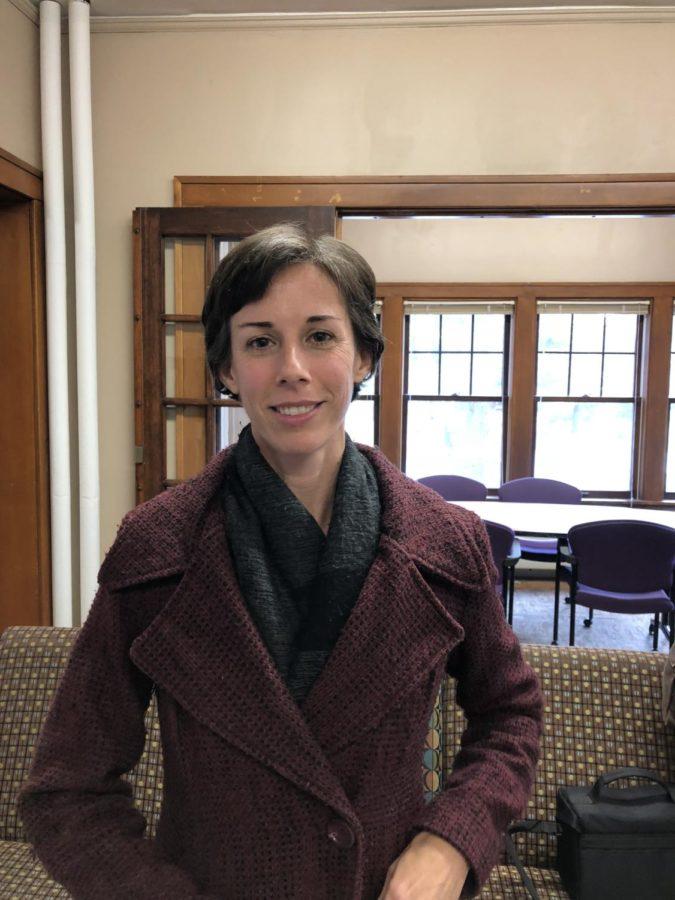Feminist Friday: Speaker discusses violence against woman, how it can be prevented
Maribel Barrera/ Iowa State Daily
Ames native Sara Siebert took the stage Friday afternoon at this weeks’ Margaret Sloss Women’s Center’s Feminist Friday to speak on the issue of violence against women and girls, and specifically ways that it can be prevented.
November 11, 2018
Ames native Sara Siebert took the stage Friday at this week’s Margaret Sloss Women’s Center’s Feminist Friday to speak on the issue of violence against women and girls, and how it can be prevented.
The title of Siebert’s discussion was “Organizing Communities to Prevent Violence Against Women and Girls.” It focused heavily on how communities can work from the inside out to eliminate violence against women, beginning with the individual, as well as the idea of power dynamics between genders, and how it relates to the issue of violence against women.
According to the United Nations, one in three women worldwide experience some sort of domestic or sexual violence from partners or non-partners.
SASA and Power to Girls were two of the strategies discussed. Sasa is the Kiswahili word for ‘now,’ but doubles as an acronym that stands for “Start,” “Awareness,” “Support” and “Action.”
It aims to first address the root causes of violence against women in communities around the world, and then to inspire change within those communities, according to the Raising Voices website, the organization responsible for SASA.
“SASA is going on now in about 25 countries, and that didn’t happen [overnight],” Siebert said.
Power to Girls is a complementary program to SASA, and focuses on programming for young girls, and empowering them, Siebert said.
“Girls are often the ones who are experiencing a lot of violence,” Siebert said. “Because of that power dynamic, we try to figure out, with Power to Girls, how to combine girl-centered programming, like girls’ groups, and really investing in the support and capacity and activism of girls.”
While a lot of Siebert’s experience has been in countries other than the United States, she opened the discussion to conceptualize ways in which the Iowa State community can begin tackling the issue of violence against women beginning at the individual and community level here on campus.
“Imagine what this would look like in this community. […] if something like this existed in my community, what would work?” Siebert said. “What would my role be in that, and how could that happen?”
Siebert has spent more than 20 years working to end violence against women and girls. She spent time overseas in Uganda and Haiti working to find ways that work with communities present there.
“This has been an issue in every, every, every space that I’ve ever been in in any country,” Siebert said. “There’s […] a room full of women talking about this, and, like, a really nice guy or two, [who] already knew and were already kind of aware [of] this [issue]. So how do you get to everybody else?”
















